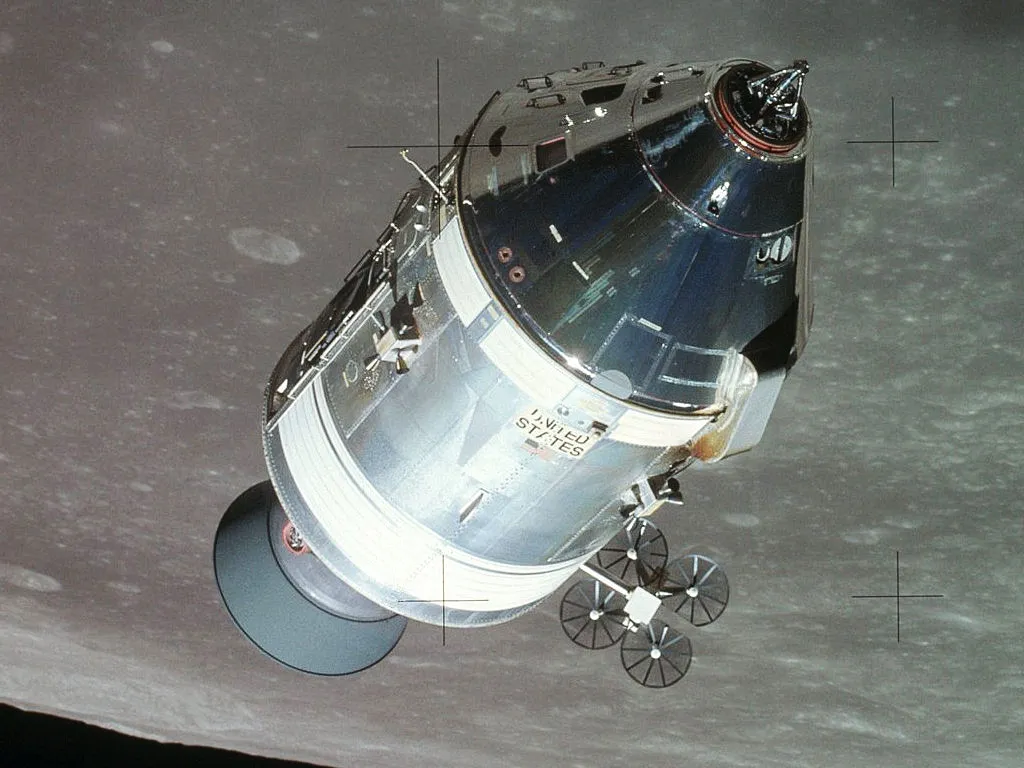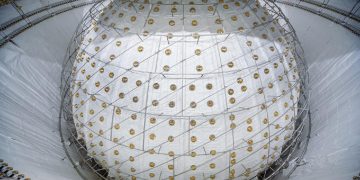Introduction
NASA’s innovations extend far beyond the boundaries of space exploration; they also foster advancements in various industrial sectors on Earth. One such groundbreaking achievement is NASA’s development of technology related to fuel cells—a crucial component for clean energy solutions. The impact of NASA’s work in this area has catalyzed the growth of the commercial fuel cell industry, reflecting the profound influence of space technology on everyday life. This article provides a comprehensive exploration of NASA’s contributions to the fuel cell industry, examining the technological advancements, the role of NASA’s Moonshot initiative, and the broader implications for sustainable energy.
The Evolution of Fuel Cell Technology
Fuel cells are electrochemical devices that convert chemical energy directly into electrical energy with high efficiency and low environmental impact. They play a significant role in various applications, from powering vehicles to providing backup power for critical systems. To appreciate NASA’s impact, it’s essential to understand the evolution of fuel cell technology:
1. Early Development
The concept of fuel cells dates back to the 19th century when Sir William Grove, a Welsh scientist, invented the first fuel cell in 1839. However, it wasn’t until the mid-20th century that fuel cells gained practical significance. Early advancements focused on improving efficiency and durability, leading to their use in space missions.
2. NASA’s Role in Fuel Cell Advancements
NASA’s involvement with fuel cells began in the 1960s during the Apollo space program. The agency required a reliable power source for space missions, leading to the development of high-performance fuel cells. Key milestones include:
- Apollo Missions: NASA’s Apollo missions used fuel cells to generate electricity and water on the spacecraft. These cells demonstrated the viability of fuel cell technology in harsh and remote environments, paving the way for further research and development.
- Space Shuttle Program: Fuel cells were also integral to the Space Shuttle program, providing power and water to the shuttle’s systems. NASA’s continued investment in fuel cell technology during this period spurred significant advancements.
The Moonshot Initiative and Fuel Cell Technology
NASA’s Moonshot initiative, a modern endeavor aimed at achieving ambitious goals, has had a profound impact on the commercial fuel cell industry. The initiative encompasses several key aspects:
1. Objectives of the Moonshot Initiative
The Moonshot initiative seeks to address complex challenges by leveraging NASA’s expertise and technology. Its objectives include:
- Innovation and Technology Transfer: The initiative focuses on transferring advanced technologies developed for space missions to commercial applications. This technology transfer is crucial for fostering innovation and driving economic growth.
- Collaborative Partnerships: NASA collaborates with private industry, academic institutions, and other organizations to accelerate the development and deployment of new technologies. These partnerships are essential for translating space technology into practical solutions for Earth.
- Sustainable Solutions: A core goal of the Moonshot initiative is to promote sustainability. By developing and applying technologies that reduce environmental impact, NASA aims to address global challenges such as climate change and energy security.
2. Impact on the Fuel Cell Industry
NASA’s Moonshot initiative has significantly impacted the commercial fuel cell industry through:
- Technological Advancements: NASA’s research and development efforts have led to innovations in fuel cell technology, including improvements in efficiency, durability, and cost-effectiveness. These advancements have made fuel cells more viable for commercial applications.
- Commercialization and Adoption: The technology transfer facilitated by NASA’s Moonshot initiative has accelerated the commercialization of fuel cell technology. As a result, fuel cells have gained traction in various industries, including transportation, stationary power generation, and backup power systems.
- Economic Growth and Job Creation: The growth of the fuel cell industry has contributed to economic development and job creation. The expansion of fuel cell manufacturing and deployment has generated new business opportunities and driven technological progress.
Technological Innovations and Their Applications
NASA’s contributions to fuel cell technology encompass a range of innovations with diverse applications. Here’s a closer look at some of the key advancements:
1. Enhanced Efficiency and Performance
NASA’s research has led to significant improvements in fuel cell efficiency and performance. Key advancements include:
- High-Performance Membranes: NASA has developed advanced membrane materials that enhance the performance of fuel cells. These membranes improve the efficiency of the electrochemical reactions within the fuel cell, resulting in higher power output and longer operational life.
- Durability and Longevity: Innovations in catalyst materials and cell design have increased the durability and longevity of fuel cells. NASA’s work in this area has addressed issues related to degradation and failure, making fuel cells more reliable for long-term use.
2. Reduced Costs
Cost reduction is a critical factor in the widespread adoption of fuel cells. NASA’s efforts have contributed to:
- Lower Manufacturing Costs: Advances in manufacturing processes and materials have reduced the cost of producing fuel cells. These cost reductions have made fuel cells more competitive with traditional energy sources.
- Economies of Scale: As the fuel cell industry grows, economies of scale have further lowered costs. NASA’s support for commercialization has accelerated the development of large-scale production facilities, driving down costs and increasing availability.
3. Diverse Applications
Fuel cells have a wide range of applications, many of which have been advanced by NASA’s technology. Key applications include:
- Transportation: Fuel cells are used in hydrogen-powered vehicles, including cars, buses, and trucks. NASA’s innovations have improved the performance and affordability of these vehicles, supporting the transition to cleaner transportation options.
- Stationary Power Generation: Fuel cells are used for stationary power generation in applications such as backup power systems, remote power supplies, and distributed energy generation. NASA’s advancements have enhanced the reliability and efficiency of these systems.
- Portable Power: Portable fuel cells provide power for various devices and equipment, including military and emergency response applications. NASA’s work has contributed to the development of lightweight and high-performance portable fuel cells.

The Broader Impact on Sustainability
The commercialization of fuel cell technology has far-reaching implications for sustainability and environmental protection:
1. Reducing Greenhouse Gas Emissions
Fuel cells produce electricity through an electrochemical process that generates only water and heat as byproducts. This clean energy process contributes to:
- Lower Emissions: Fuel cells significantly reduce greenhouse gas emissions compared to traditional fossil fuel-based power sources. By transitioning to fuel cells, industries and consumers can decrease their carbon footprint and mitigate climate change.
- Air Quality Improvement: The use of fuel cells in transportation and power generation helps improve air quality by reducing pollutants such as nitrogen oxides and particulate matter. This benefits public health and contributes to cleaner urban environments.
2. Promoting Renewable Energy Integration
Fuel cells complement renewable energy sources by providing a means of energy storage and backup power. Key aspects include:
- Energy Storage: Fuel cells can store excess energy generated from renewable sources, such as wind and solar power. This stored energy can be used during periods of low renewable energy generation, enhancing the reliability of renewable energy systems.
- Grid Stability: Fuel cells can support grid stability by providing backup power during outages and peak demand periods. This helps ensure a reliable and resilient energy infrastructure.
Future Directions and Challenges
While NASA’s advancements have significantly impacted the fuel cell industry, several challenges and future directions remain:
1. Continued Research and Development
Ongoing research is essential for addressing remaining challenges and advancing fuel cell technology:
- Innovation in Materials: Further research is needed to develop new materials that improve fuel cell performance, durability, and cost. This includes exploring alternative catalysts, membranes, and electrode materials.
- Scalability: Scaling up fuel cell technology for widespread adoption requires continued innovation in manufacturing processes and system integration. Research efforts will focus on optimizing production techniques and reducing costs.
2. Policy and Regulatory Support
Supportive policies and regulations are crucial for the continued growth of the fuel cell industry:
- Incentives and Subsidies: Government incentives and subsidies can help promote the adoption of fuel cells by offsetting costs and encouraging investment in clean energy technologies.
- Standards and Regulations: Developing and implementing standards and regulations for fuel cell technology ensures safety, performance, and interoperability. Collaborative efforts between industry and regulatory bodies will be essential.
3. Public Awareness and Education
Raising public awareness and understanding of fuel cell technology is important for fostering acceptance and adoption:
- Educational Programs: Educational programs and outreach efforts can help inform the public about the benefits and applications of fuel cells. This includes highlighting success stories and demonstrating real-world applications.
- Engagement with Stakeholders: Engaging with stakeholders, including industry leaders, policymakers, and community organizations, can help build support for fuel cell technology and drive its adoption.
Conclusion
NASA’s Moonshot initiative has played a transformative role in advancing fuel cell technology and catalyzing the growth of the commercial fuel cell industry. Through innovative research, technology transfer, and collaborative partnerships, NASA has contributed to significant advancements in efficiency, cost reduction, and environmental sustainability.
As fuel cell technology continues to evolve, it holds the promise of providing cleaner, more reliable energy solutions for a wide range of applications. The broader impact on sustainability, coupled with ongoing research and development, positions fuel cells as a key component in the transition to a more sustainable energy future.
The continued collaboration between NASA, industry partners, and policymakers will be essential in addressing challenges, promoting adoption, and achieving the ambitious goals set forth by the Moonshot initiative. By leveraging the advancements in fuel cell technology, we can look forward to a cleaner, more sustainable energy landscape that benefits both current and future generations.












































Discussion about this post